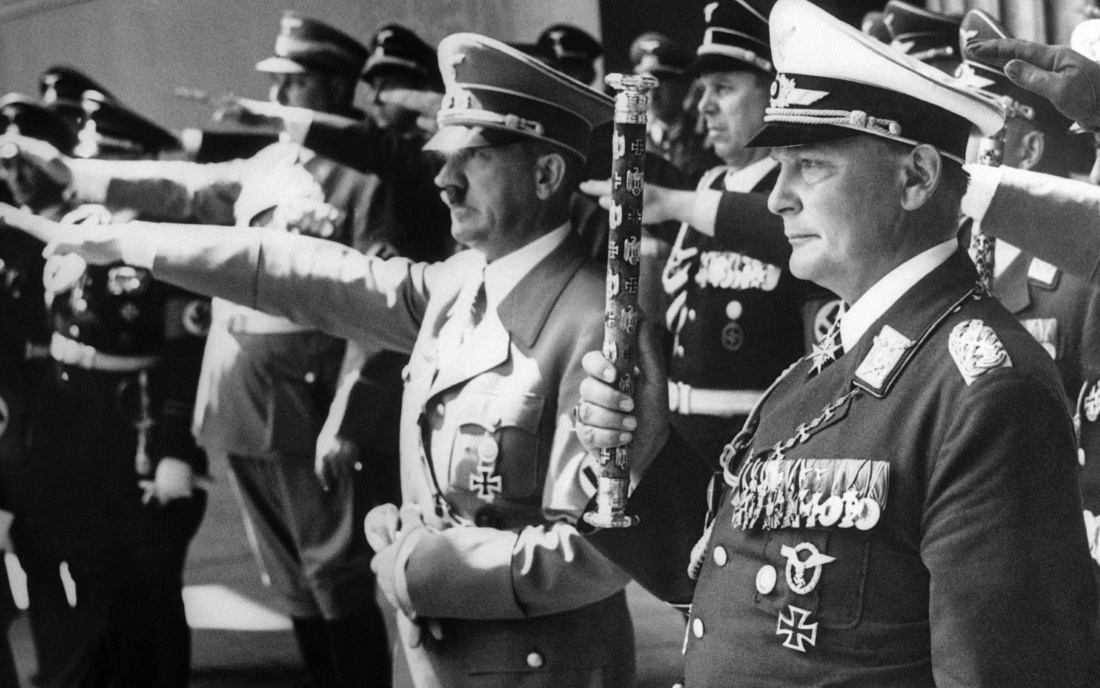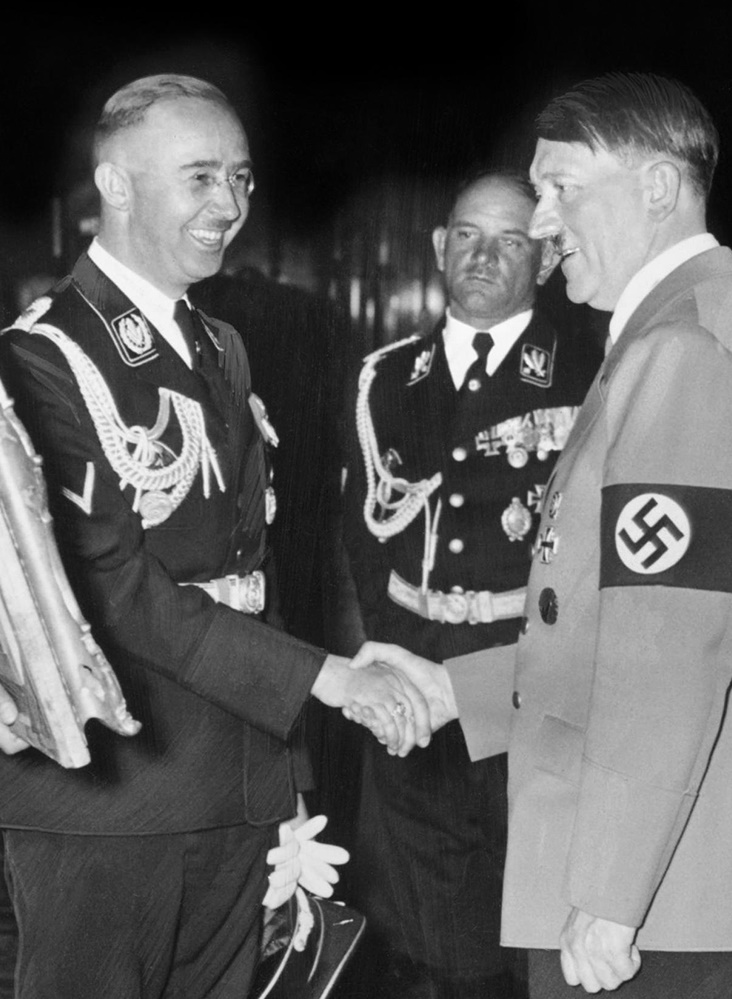 Education – Adolf Hitler has always despised education, having had so little himself. He dislikes so much the ‘Professor Type’ that in 1932 when it was suggested he should be given a degree by the Government of Braunschweig in order to become a German citizen he objected. He aids not think it at all funny when at the Kaiserhof Hotel, Dr. Sedgwick said to him laughingly; ‘Well, now you are about to become a Professor after all’. He decided eventually against this scheme and obtained his citizenship by being made Ober Regierung’s Rat in Braunschweig in February 1932. He speaks no language other than German and never listens to any short wave from any other country except German broadcasts from Paris or Moscow.
Education – Adolf Hitler has always despised education, having had so little himself. He dislikes so much the ‘Professor Type’ that in 1932 when it was suggested he should be given a degree by the Government of Braunschweig in order to become a German citizen he objected. He aids not think it at all funny when at the Kaiserhof Hotel, Dr. Sedgwick said to him laughingly; ‘Well, now you are about to become a Professor after all’. He decided eventually against this scheme and obtained his citizenship by being made Ober Regierung’s Rat in Braunschweig in February 1932. He speaks no language other than German and never listens to any short wave from any other country except German broadcasts from Paris or Moscow.
Writing – Hitler writes very few letters himself. He writes only in longhand and never uses a typewriter. However, he writes notes to accompany flowers for commemorative occasions. He never carries either a pencil, pen, or paper with him and never makes any notes himself, only drawings and doodles. These drawings or sketches are usually of flags, Party symbols, stage settings, portrait heads, and houses. His doodles are usually developed out of a square and are collected avidly by the official photographer, Heinrich Hoffmann, who intends to edit them at some future time, possibly after Hitler’s death. He never consults the calendar nor his datebook, which is kept by Schaub and Brueckner. Hitler often used to say ‘I have no private life, not even private correspondence. Everything is read before I get it. This is the price I pay.
 Reading – From Mein Kampf, it is obvious that Hitler only reads to confirm his own ideas. He reads only what is of ‘value’ to him. Just as in conversation people ‘hear themselves even in the words of the man who is talking to them’, so the majority of readers only read themselves in the books they are reading. The power to enter into the world of the author, as Goethe says, is given to very few people. This explains in part why the most profound and the most brilliant books have, so little real influence on the mass of readers. Hitler is the exemplification on the grand scale of this phenomenon. Gifted from childhood with an extraordinary power of speech, in his reading, he is only attracted by outstanding examples of rhetoric and historic epigram.
Reading – From Mein Kampf, it is obvious that Hitler only reads to confirm his own ideas. He reads only what is of ‘value’ to him. Just as in conversation people ‘hear themselves even in the words of the man who is talking to them’, so the majority of readers only read themselves in the books they are reading. The power to enter into the world of the author, as Goethe says, is given to very few people. This explains in part why the most profound and the most brilliant books have, so little real influence on the mass of readers. Hitler is the exemplification on the grand scale of this phenomenon. Gifted from childhood with an extraordinary power of speech, in his reading, he is only attracted by outstanding examples of rhetoric and historic epigram.
He has read about Solon, Alexander the Great, Marius Sulla, Brutus, Catiline, Caesar, Henry VIII, Gustave Adolf, Frederick the Great, Jesus Christ, Moses, Luther, Cromwell, Napoleon, Kutusov, Blucher, Richard Wagner, and Bismarck. However, in all those lives he has read-with his interest was confined to the demagogic, propagandistic, and militaristic side. Hitler’s world is one of action, not contemplation. That is why he prefers the dramatic, revolutionary Schiller to line Olympian and contemplative Goethe. Biographies that lack a note of rebellion and titanic protest against the existent world bore him. He considers them saturated, bourgeois stuff. For example, whim Hitler reads about Napoleon’s life he is interested only in a sort of film scenario of the parts of the life which show action, never in the contemplative aid. He is always on the lookout for the dramatic phrase, the happy epigram which he can twist to his own use. He displays in the use of such a phrase a fantastic sense of cadence, euphony, assonance, and alliteration.
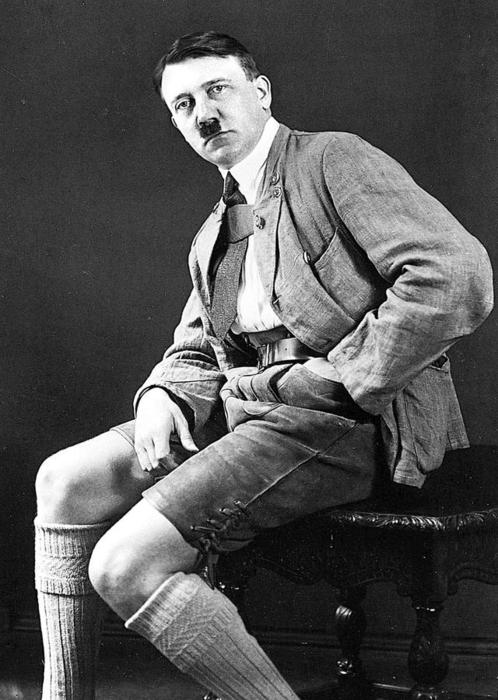 One good phrase or political catchword is worth: more to him than cartloads of dry exposition and theory. A catchword gives the unthinking mob not only the material for an idea but also furnishes them with the pleasant illusion that they are thinking of themselves. There is only so much room in a brain, so much wall space as it were, and if you furnish it with your slogans the opposition has no place to put up any pictures later on because the apartment of the brain is already crowded with furniture. In modern history, it is the lives of Oliver Cromwell, Frederick the Great, Napoleon, and Blucher which have interested Hitler the most since childhood.
One good phrase or political catchword is worth: more to him than cartloads of dry exposition and theory. A catchword gives the unthinking mob not only the material for an idea but also furnishes them with the pleasant illusion that they are thinking of themselves. There is only so much room in a brain, so much wall space as it were, and if you furnish it with your slogans the opposition has no place to put up any pictures later on because the apartment of the brain is already crowded with furniture. In modern history, it is the lives of Oliver Cromwell, Frederick the Great, Napoleon, and Blucher which have interested Hitler the most since childhood.
Concentration – Hitler will listen attentively to anything he likes to hear, but if the subject is unpleasant, he will look at a picture paper and pay as little attention as possible. He often reads Party Reports himself and concentrates on them while he is so doing, provided that they interest him. He avoids reading reports and desk work as much as possible almost to the point of negligence. His entourage is in a continuous state of despair on account of his procrastination in dealing with this desk work. These protests of his staff he never takes seriously. Hitler says: ‘Problems are not solved by getting fidgety. If the time is ripe the matter will be settled one way or another.
Noise – Silence – (Noise) He is extraordinarily impervious to noise. While he reads the papers, the boisterous conversation does not annoy him, rather the contrary, he likes to be able to overhear what is being said. A constant buzz of many voices is to him almost like a substitute for going out into the world and seeing what is going on for himself. (Silence) Hitler has a great capacity for silence. In the train or automobile from Berlin to Munich, he would say only perhaps a few words during the entire journey. He would be thinking and planning.
Conversation – During meals, he is apt to let the conversation be general, but after an hour or two, he starts a monologue. These monologues form part of a fixed repertoire. They will be of a finished perfection like phonograph records, the favorite ones being: ‘When, I was in Vienna‘ and ‘When I was a soldier’, ‘When I was in prison’, ‘When I was the leader in the early days of the Party’, and so forth. He frequently gets onto the subject of Richard Wagner and the opera.
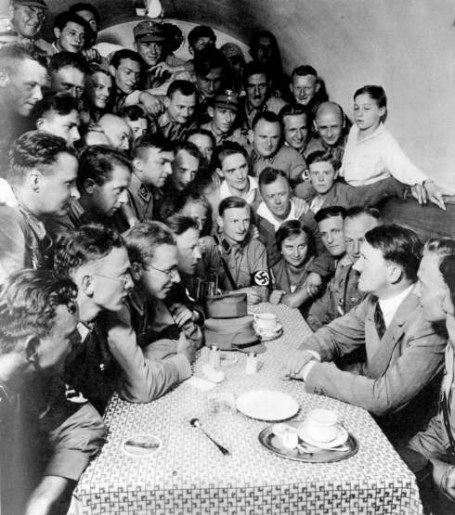 None interrupts these encore – rhapsodies. He carries on with these until the guests finally break down and must retire because they can no longer keep their eyes open. The guests, which consisted overwhelmingly of women, listened enraptured. In the end, there was not a dry seat in the audience. He hardly ever mentions his collaborators when they are not present.
None interrupts these encore – rhapsodies. He carries on with these until the guests finally break down and must retire because they can no longer keep their eyes open. The guests, which consisted overwhelmingly of women, listened enraptured. In the end, there was not a dry seat in the audience. He hardly ever mentions his collaborators when they are not present.
He does not tolerate gossip, except possibly at Goebbels’ house very late at night or at Heinrich Hoffmann’s house in Munich.
While debating and especially during an argument, he has incredible lucidity. He is concise and knows how to present his case like a sputtering machine gun. The cadences of his sentences are irresistibly shaped; they have a piercing power. No other orator has ever made such an impression on Dr. Sedgwick.
Physique, Personal Appearance, Cleanliness, Endurance, Exercise – Hitler is meticulous about his personal appearance and will never remove his coat in public – no matter how warm he feels. He allows none to see him in his bath or see him naked. In his dress, he is always very convenient and takes the advice of his tailor. He puts on the clothes that are laid out for him by Schaub without any fussiness. He never uses perfume. Dr. Sedgwick at various times brought back from England Yardley’s lavender-smelling salts, which he should use when fatigued by very long speeches or during trips by plane to get away from the smell of gasoline. Hitler always objected to Dr. Sedgwick’s use of perfume and twitted him about it. Hitler disapproved of Dr. Sedgwick’s giving lavender salts to Angela Hitler-Raubal, his sister, who was the mother of Geli Raubal who shot herself. In 1923 Dr. Sedgwick, who disliked Hitler’s little mustache, tried to convince him of its ugliness arguing that it should extend to the full width of the mouth. Dr. Sedgwick said: ‘Look at the portraits by Holbein and Van Dyck, the old masters would never have dreamed of such an ugly fashion’ Hitler replied: ‘Do not worry about my mustache. If it is not the fashion now, it will be later because I wear it.
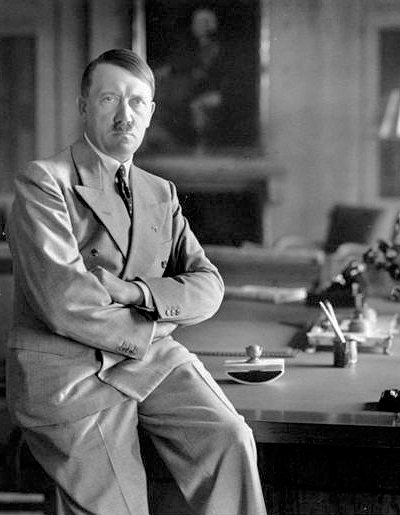 Cleanliness – He is strict about bathing himself and likes a tub. He shoves himself every day. Once a week the barber trims his mustache, and his hair is out at regular intervals. Arrangements for these matters are in the hands of Kannenberg. A local barber, an old Party member, is generally employed.
Cleanliness – He is strict about bathing himself and likes a tub. He shoves himself every day. Once a week the barber trims his mustache, and his hair is out at regular intervals. Arrangements for these matters are in the hands of Kannenberg. A local barber, an old Party member, is generally employed.
Endurance – Hitler is quite robust and has a good deal of physical endurance. In 1932 he and his staff, often worked twenty hours a day for weeks on end. He seemed to stand it better than his staff as it was he who was setting the pace. After a long and heavy day and missing one or two meals he always insists on his chauffeurs and staff eating first and he himself will eat last. If food is placed before him by some enthusiastic waitress he will carry it himself to the chauffeurs. He is completely uninterested in either indoor or outdoor games. He takes no exercise other than walking and this at irregular intervals. His pacing of the room is frequent and done a la Marcia, to a tune which he whistles. He never walks the length of the room but always diagonally from corner to corner – possibly a habit contracted when a prisoner in Landsberg. While he was imprisoned in Landsberg, Hess organized games and exercises for the prisoners but Hitler refused to take part saying that it would be undignified for him to do so, and ‘bad for general discipline’.
For example. Hitler said: ‘A Fuehrer cannot stop to such informality. I must always keep up a distance from the entourage. While he has considerable knowledge of the workings of a car or an airplane he has never learned to drive either. He is fond of automobile riding as a means of getting privacy, fresh air, and sleep. When the weather is bad he does not go out. However, if he has any engagement he disregards the elements. In any parade, he uses an open car regardless of the weather. He demands the same of his entire entourage. Hitler says: ‘We are not bourgeois but soldiers’.
 To be with Hitler, particularly at night, is an ordeal for people with sensitive eyes. Dr. Sedgwick was sometimes driven to distraction in the early hours of the morning by the brilliant light Hitler always insists on having all around him. Dr. Sedgwick was forced to the conclusion that Hitler’s eyes were not normal, which might have been caused by gas poisoning in the fall of 1918 when he almost went blind. This factor very likely comes into play in his artistic tastes and in the manner in which he judges paintings. Only very bright colors really satisfy him. Up to 1937 he never wore glasses of any kind or any protection against sun glare, even in the snow. Of late Dr. Sedgwick understands that on account of headaches caused by his eyes, he has had to follow the advice of his physicians and now wears reading glasses. He probably resisted this as long as it was possible for him to do so. Partly from vanity and partly through his contempt for the ‘Professor Type’ spectacles have always been a nightmare for him.
To be with Hitler, particularly at night, is an ordeal for people with sensitive eyes. Dr. Sedgwick was sometimes driven to distraction in the early hours of the morning by the brilliant light Hitler always insists on having all around him. Dr. Sedgwick was forced to the conclusion that Hitler’s eyes were not normal, which might have been caused by gas poisoning in the fall of 1918 when he almost went blind. This factor very likely comes into play in his artistic tastes and in the manner in which he judges paintings. Only very bright colors really satisfy him. Up to 1937 he never wore glasses of any kind or any protection against sun glare, even in the snow. Of late Dr. Sedgwick understands that on account of headaches caused by his eyes, he has had to follow the advice of his physicians and now wears reading glasses. He probably resisted this as long as it was possible for him to do so. Partly from vanity and partly through his contempt for the ‘Professor Type’ spectacles have always been a nightmare for him.
Voice – His voice possesses a typically Austrian metallic sonority and timbre. In general, he talks softly but he is quite capable on occasion of launching out into a forceful speech even with only one or two people present. The cliché story of his screaming loudly is not true and is much exaggerated. Contradiction in public rarely induces very loud replies. 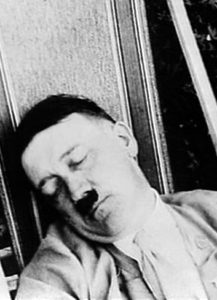 It is different during office hours; then anything may lead to a ‘grande scene’ and he will lose his temper. He has special drinks made for him before and after a speech to soothe his voice and probably now has his throat, sprayed regularly before speaking. Speaking is really his chief form of exercise and after a speech, he will be bathed in perspiration.
It is different during office hours; then anything may lead to a ‘grande scene’ and he will lose his temper. He has special drinks made for him before and after a speech to soothe his voice and probably now has his throat, sprayed regularly before speaking. Speaking is really his chief form of exercise and after a speech, he will be bathed in perspiration.
He is probably only happy and restful when he has talked himself to the point of swooning from exhaustion.
Sleep – He sleeps very badly since his imprisonment at Landsberg. He takes some sleeping drafts every night. He goes to bed as late as possible and when his last friends leave him exhausted at two or three in the morning or even later it is almost as though he were afraid to be alone. Sometimes he is unable to sleep until dawn. However, he usually manages to sleep until ten when he receives his two secretaries of State, Lammers, and Funk. He dislikes central heating in the bedroom and in winter has a stove made of Dutch tiles (Kachelofen)
Reactions – He is a mixture between a fox and a wolf. He plays the fox as long as possible and sometimes even a lamb but in the end, the wolf is always ready to emerge. It is interesting that in the early days of 1920 up to 1933 his secret name for telephone messages and in the conversations of his friends was ‘Wolf’. Frau Winnefried Wagner still calls him by this name.
He is astonishingly brave. In the near 1923 certain phases of the Party were decided by street fighting in which he was always courageous. After his imprisonment in Landsberg, he was continually in increasing danger of assassination. He does not particularly soak out danger, but if he decides that a thing must be done, he calmly thinks out the precautions to be taken and then goes through with the job absolutely fearlessly. It is perfectly conscious bravery. He remains calm and collected even in emergencies and knows exactly the best method of checkmating his enemies. He places physical pain also with exemplary courage. He is very much afraid of the water and cannot swim.
Diet, Food, Drinks, Smoking – He abstains almost completely from meat. On rare occasions, he eats a little chicken with rice or smoked salmon as an appetizer. In 1932 Dr. Sedgwick had occasion to watch his diet very closely; Hitler would get up in the morning around 0930 and have breakfast on an apple, hot milk, or very weak coffee with rolls, butter, and marmalade. This breakfast was followed by doses of medicine administered to him by his secretary, Julius Schaub a former pharmacist apprentice. Schaub today as then is in charge of Hitler’s home medicine chest, which consists of two classes of drugs: sleeping powders for the night; and digestive powders with which he starts the day and which are taken after every meal. Luncheon is supposed to be at 1300. However, Hitler is almost invariably one and a half to two hours late which drives his majordomo, Kannenberg to despair. Hitler practically never had a normal appetite in Berlin but it improves markedly at Berchtesgaden. Otto Dietrich, who suffers from weak digestion, often left his office at 1300, went across to the Kaiserhof, and returned half an hour later having had luncheon. He would then wait for Hitler to arrive.
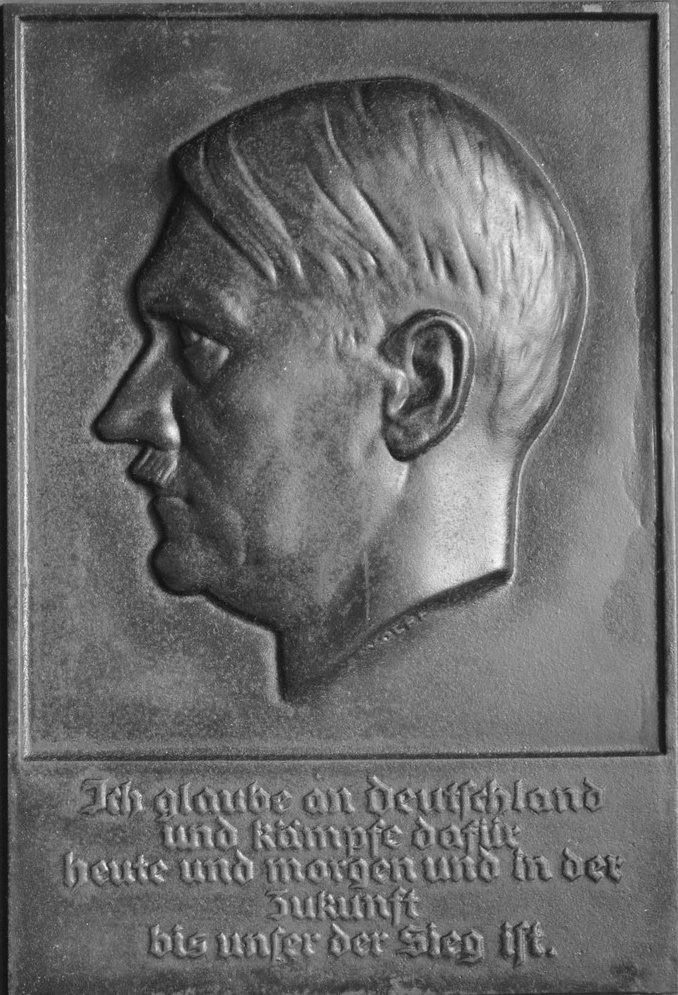 While in Berlin the slightest pretext would be welcomed by Hitler as an excuse for still further postponing luncheon. He would usually have some soup, generally, pea soup or tomato soup with Parmesan, followed by a special dish of omelet with asparagus tips or mushrooms, spinach or cauliflower, and a green salad. At Berchtesgaden, he has Bavarian dishes such as yellow boletus, and mushrooms with dumplings i.e. ‘steinpilze mit knoedel’. For dessert, he prefers Austrian pastries, pancakes, or some cooked farinaceous dish. At five o’clock he drinks coffee or tea with rum of medium strength with baum torte, linzer torte, nuss torte, chokoladen torte, or toast. He cannot resist dissolving really good chocolates in his coffee. In the evening he is supposed to dine at eight o’clock but it is rare for him to get to it until nine or later. The evening meal is similar to luncheon usually a vegetable plate i.e. ‘gemueseplatte’.
While in Berlin the slightest pretext would be welcomed by Hitler as an excuse for still further postponing luncheon. He would usually have some soup, generally, pea soup or tomato soup with Parmesan, followed by a special dish of omelet with asparagus tips or mushrooms, spinach or cauliflower, and a green salad. At Berchtesgaden, he has Bavarian dishes such as yellow boletus, and mushrooms with dumplings i.e. ‘steinpilze mit knoedel’. For dessert, he prefers Austrian pastries, pancakes, or some cooked farinaceous dish. At five o’clock he drinks coffee or tea with rum of medium strength with baum torte, linzer torte, nuss torte, chokoladen torte, or toast. He cannot resist dissolving really good chocolates in his coffee. In the evening he is supposed to dine at eight o’clock but it is rare for him to get to it until nine or later. The evening meal is similar to luncheon usually a vegetable plate i.e. ‘gemueseplatte’.
Drink – Beer and wine drinking he gave up after his imprisonment in Landsberg. If he gets a cold he will sometimes take hot tea with rum in it. In July 1934, Dr. Sedgwick brought him back some Jamaica rum. He said he would use it, but only when he had a cold. His private doctor is a frequent guest at his table. It was this young doctor, who in the summer of 1933 saved Brueckneis’s life after his automobile accident in Berchtesgaden. Hitler then decided to have a private doctor always near him in order to perform any necessary operation on the spot. Hitler said: A good doctor on the spot is easily as important as a whole platoon of guards.
Smoking – As a soldier, Hitler smoked and drank beer. However, by 1922 and even earlier he had stopped what little smoking he had done. The motive given was ‘to increase his capacity as a speaker and his general efficiency’. If he is not going to make a speech he tolerates smoking around him, and even keeps supplies of smoke for his friends. Smoking is never permitted during his speeches. This is also true for the great Party rallies held outdoors at Nuernberg. However, at these smoking is considered bad etiquette and hence never permitted. Hitler inwardly sides with the purists and abstainers. In this, he was backed up by Hess and the Spartan program of living. Inwardly Hitler always resented Roehm’s epicurean habits and opulent Havana cigars. If people ask him regarding his ascetic life Hitler replies: ‘If I once find that a thing is not good for me, then I stop eating it’. As I know that meat, beer, and nicotine injure and impair my constitution, I don’t indulge in them anymore. Such a decision is taken once, and for always. Is that so wonderful.
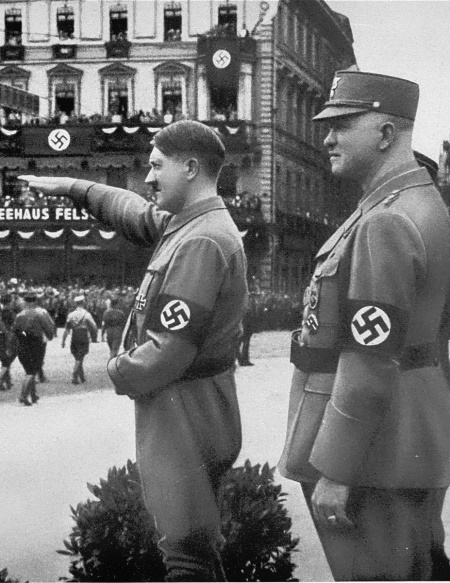 Führer Personal Protection – Adolf Hitler and Heinrich Himmler decided that the best method would be that the police should alternate one looking at the procession and one looking into the crowd. The procession itself must be conveyed in the style described to Hitler by Dr. Sedgwick as that used by the US Secret Police for the protection of Woodrow Wilson. The system consists of motorcycles on the right and left of the central car, and two police cars following the car of the parsonage. Hitler SS police cars have strict orders to accelerate and run down anyone who emerges from the crowd. Hitler always sits in the front seat next to the chauffeur. This gives him the protection of a bulletproof glass windscreen in front, the chauffeur on one side, and members of the armed entourage behind him in the car. He is against armed men on the running board as he thinks it looks overcautious to the crowd and also detracts from the triumphant and joyful note that his appearance should elicit.
Führer Personal Protection – Adolf Hitler and Heinrich Himmler decided that the best method would be that the police should alternate one looking at the procession and one looking into the crowd. The procession itself must be conveyed in the style described to Hitler by Dr. Sedgwick as that used by the US Secret Police for the protection of Woodrow Wilson. The system consists of motorcycles on the right and left of the central car, and two police cars following the car of the parsonage. Hitler SS police cars have strict orders to accelerate and run down anyone who emerges from the crowd. Hitler always sits in the front seat next to the chauffeur. This gives him the protection of a bulletproof glass windscreen in front, the chauffeur on one side, and members of the armed entourage behind him in the car. He is against armed men on the running board as he thinks it looks overcautious to the crowd and also detracts from the triumphant and joyful note that his appearance should elicit.
Hitler has said that too clumsy a display of precautionary measures indicates a lack of security and suggests to the crowd a kind, of guilty weakness which would leave an odious impression. To Himmler, he once referred to this overemphasis on his personal safety as giving a picture of a ‘Tyrann Auf Reisen’. When he is in residence at Berchtesgaden he goes for country walks in Indian file, with five or six armed guards in civilian clothes in the front and five or six behind. On both sides of this cavalcade, armed patrols cover the flanks at a distance of about one hundred paces. These walks are always in the afternoon, never in the morning. The fact is that since 1933 and even earlier the guarding of his personality has become such an important problem that he is virtually a prisoner and he knows it. This results in a desire to escape from this imprisonment either by seeing friends, moving pictures, or riding in an automobile. Hitler once said to Dr. Sedgwick: ‘If you come down to it, I am very much in the position of the Pope, who for similar and other reasons has to remain, confined in the Vatican. That is why the whole quadrangle of the Wilhelmstrasse must sooner or later be added to the Reichskanzlei area and surrounded by, colonnades for walking in bad weather. That would hold good also for my successor and his successors. This was said at the Reichskanzlei in the summer of 1934 with what seemed a special emphasis for Hermann Goering, who was sitting at his right.









